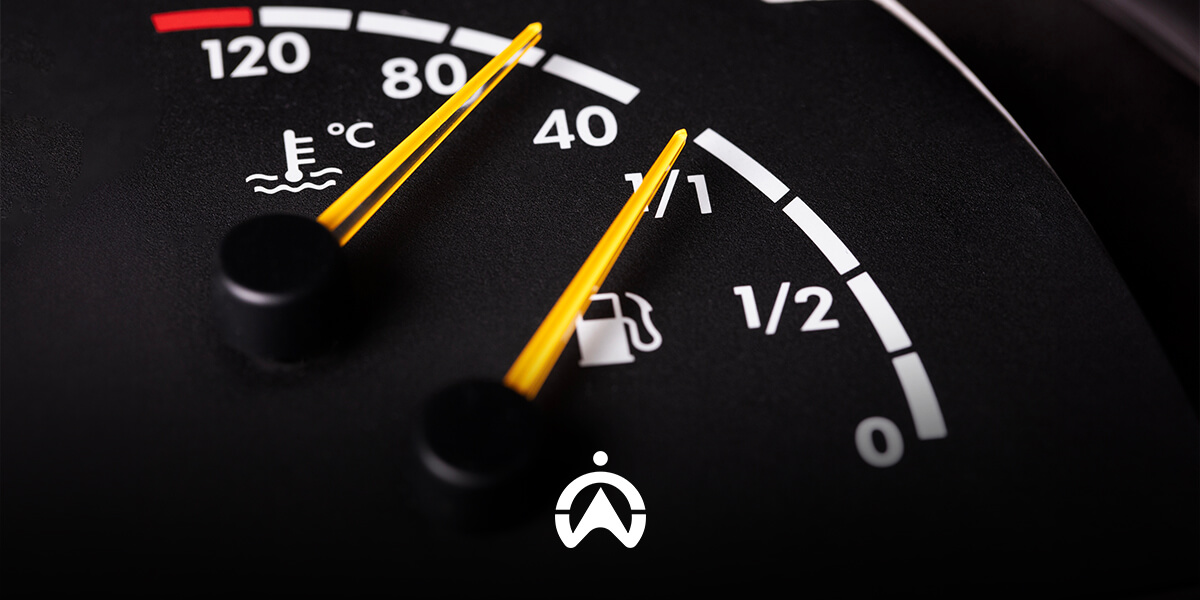- Solutions
- The Company
- About usCartrack offers smart fleet solutions guaranteed to optimise your fleet and workforce, no matter how big or small your business.
- Investor RelationsCartrack has a history of strong cash flow generation and cash conversion, low financial leverage and strong dividends.
- CareersCareers portal. View all the current Cartrack career openings and opportunities available.
- Resources
- Contact Us
- Bahasa
- Login
What Is Fuel Efficiency? Everything to Know

---- 2024/10/11 ---
Nothing makes a fleet manager more proud than a fuel-efficient fleet. However, as rewarding as fuel efficiency is for fleets, many don't know the first step to achieving it.
This blog explores the importance of fuel efficiency and the recommended steps to take to reach it. Let’s start our engine and begin exploring.
Sustainability on the horizon
Fuel efficiency is a crucial aspect of managing any fleet but due to the fluctuating fuel prices recently, achieving such a goal has proven challenging for many fleet owners.
Focusing on improving their vehicle’s fuel economy will not only improve the business’s fleet fuel usage and improve fleet operations for business but also positively affect the surrounding environment and economy, which sounds like a win-win for everyone.
Everything you need to know about fuel efficiency
A thriving fleet requires effective fleet management, driver training programs, vehicle selection, and fleet management technology to ensure safety, compliance, and fuel efficiency.
What good is having a well-maintained fleet of various types of vehicles if none of them can use fuel efficiently? On the sustainability journey, the next logical step is to look towards vehicles on the roads and public transport operations, bringing a lens to vehicle fuel efficiency.
Fuel efficiency is measuring how far a vehicle can travel with one litre. Most would assume a litre of fuel can take you far, but not all vehicles will use a litre of fuel the same way. The more miles your vehicle can travel with that one litre, the greater fuel efficiency your vehicle has.
To improve your fleet’s fuel efficiency, you must overcome the many factors that affect vehicle efficiency.
Factors that affect your fuel efficiency
- Vehicle size and carrying weight
- Fuel quality
- Under-inflated tyres
- Road conditions and traffic
- Driver behaviour
- Poor maintenance habits
All of these play a part in the bigger picture. Understanding these is crucial for optimising your fleet’s fuel consumption and reducing costs.

Is my fleet fuel efficient?
After all this information, I'm sure you want to know if your fleet meets the fuel efficiency standard. One way to find out is to follow a few steps that assess your fleet's vehicle performance, fuel consumption rate, and operational efficiency.
Step 1 Gather data
Your fleet’s fuel consumption rate is a clear indication of whether your fleet knows how to efficiently use fuel or not. Getting this rate can be done manually by looking through fuel receipts or tracking the total distance each vehicle travels. For a faster approach, fleet management software like Cartrack can automatically calculate this for you.
Step 2 Calculate your fuel economy
Once you have the information from step one, you can use it to calculate your fleet’s average fuel consumption per 100 km. All you have to do is divide the amount of fuel used in litres by the distance travelled and multiply by 100.
Step 3 Compare findings
Use the answer from your calculations to compare to industry standards or vehicle manufacturer insights on similar vehicle types.
This might seem like a long process but think of it this way, Calculating your fleet's fuel consumption can bring light to your fleet efficiency levels and identify areas for improvement. Using this information to improve your fuel economy will result in lower fuel costs and less money spent at the petrol station.
Essential tips for achieving fuel efficiency
The way a vehicle is driven can go a long way in affecting how well its fuel efficiency is. Making small changes such as decreasing the amount of times you idle or abruptly accelerate can save you thousands per year, especially when this is practised across a whole fleet.
Here are other tips that can benefit not only your vehicle but also your wallet in the long run.
Purchase fuel-efficient vehicles
This option is not always available for all businesses but opting for more fuel-efficient vehicles such as electric or hybrid vehicles is a sure way of having a fuel-efficient fleet.
Actively track fuel consumption
After filling up the tank, how long can your vehicle go without refilling again? The steps listed above can help calculate your fuel efficiency and give you insights into improving fuel consumption.
Eliminate unnecessary weight
Be mindful of how you load your fleet as heavier vehicles use more fuel. Allocate the right vehicle to transport heavier material and don’t just cramp your vehicles with unnecessary weight that they can’t carry.
Stop excessive idling
If your vehicle is stagnant for a long period of time, it’s better to switch off the engine than to stay idle. Turn off your engine if you’ve stopped for longer than 30 seconds. Believe it or not, 300 millilitres, or around 1 cup of fuel, can be wasted by idling every 10 minutes.
Improve driver behaviour
Every hatch corner you take or sudden braking highly influences your fuel use. For this reason, many businesses have driver coaching available to ensure their drivers improve their driving skills so they can save on fuel and save costs on vehicle wear and tear.
Fleet management tools for fuel management
Partner with fleet management software like Cartrack that offers GPS vehicle tracking and telematics for vehicle diagnostic information, vehicle usage data, preventative maintenance, driver behaviour along with alerts for risky behaviour and real-time data on how fuel usage with fuel monitoring solutions.
The quicker you start implementing these tips, the faster your fleet and save on fuel and steadily move towards a healthier, more fuel-efficient fleet. The price for not following through can sometimes be greater than the impact on your budget.
The price for inefficient fuel use
- Higher fuel costs
- Negative environmental impact
- Increased wear and tear
- Operational inefficiencies
- Creates emissions

Cartrack fleet management solutions for improved fuel economy
Fleet management software along with companies that offer a variety of fleet management solutions such as Cartrack, is available to assist in improving fuel economy by streamlining every aspect of vehicle management such as vehicle maintenance, vehicle allocation and usage and driver behaviour, which can all contribute to how well your fleet uses the expensive resources.
Let Cartrack be the middleman between your business and achieving peak fuel efficiency. Cartrack has a fully-stacked feature list that is all ready to improve your fleet.
Here’s how Cartrack’s trusted solutions can help your fleet reach fuel efficiency potential:
- Fuel monitoring for real-time fuel insights
- Driver coaching via Driver scorecards and reports
- Preventative vehicle maintenance notifications
- Fuel usage reports
- Route optimisation for fuel-efficient routes
- Cartrack’s MiFleet to keep track of fleet fuel costs
- Electric vehicle integration
Improve fuel usage and slash fuel costs with Cartrack
Cartrack is your one-stop shop for fuel efficiency. Put our advanced solutions to the test and start enjoying the benefits of managing a fully efficient fleet.













 Select Countries
Select Countries